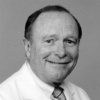April marks the one-year anniversary of the formalization of the OSF Saint Francis Heart Hospital. Envisioned as providing the environment for a collaborative working arrangement between the hospital, cardiologists, and cardiothoracic surgeons, the Heart Hospital has been a success. The journey of the Heart Hospital has been one of significant effort on the part of all involved. Physicians have become engaged to improve the processes and quality within the area of cardiovascular medicine.
Within the structure of the Heart Hospital, we've implemented 6 Sigma quality improvement projects in the areas of congestive heart failure, Cardiac Cath Lab supply costs, and the upcoming Emergency Care Unit. The 6 Sigma methodology for process improvement, which was developed through our partnership with Caterpillar Inc., has proven to be effective. Maintaining the high level of quality our community and central Illinois have come to expect is our primary concern. Patient safety and clinical outcomes are an integral part of the Heart Hospital concept.
During 2004, 332 coronary artery bypass grafting procedures, commonly called "heart bypass surgery," were performed at the OSF Saint Francis Heart Hospital. This represents an increase of 9.1 percent over the previous year. High volume is very important in maintaining high quality programs, in general, and especially in the area of cardiac surgery.
In addition, our use of certain preventive medications is helping these patients avoid many of the possible complications from open heart surgery, including stroke or blood clots in the lungs. By being proactive with these medications, our patients are less likely to experience a condition in which the heart doesn't beat as rhythmically as it should. Our rate of 16.5 percent is significantly under the national rate of 20.5 percent, as reported by the Society of Thoracic Surgeons. By cooperatively analyzing this problem, we were able to make an important improvement in patient care.
Medicine, in general, has embraced the implementation of evidence-based care. The American College of Cardiology and American Heart Association have developed guidelines for the care of patients with heart attacks that incorporate evidence-based measures. Those measures include: aspirin within 24 hours of arrival to the hospital, beta-blocker therapy within 24 hours of arrival, and percutaneous coronary intervention (PCI) within 120 minutes of arrival.
We strive to meet these goals 100 percent of the time. As compared to reported national averages, we're exceeding the national average or standard in all three measures:
| OSF | National Average | |
| Aspirin | 100% | 96% |
| Beta-Blocker | 96% | 89% |
| Our time to PCI averages 88 minutes. | ||
Dr. David Gorenz, assistant administrator at OSF Saint Francis Medical Center, noted the advantages of using the model chosen for the Heart Hospital. "As recently reported in the news, health care costs remain a topic of great concern in this country. Bringing together the resources of the hospital system, cardiologists, and cardiothoracic surgeons offer the best opportunity to tackle those cost concerns while not having a detrimental effect on patient safety and outcomes. The first year of our Heart Hospital shows us this model encourages that collective effort towards improvement."
Does the collaborative effort between OSF Saint Francis and HeartCare Midwest work? We think the statistics speak for themselves. We'll continue to work together and are committed to providing the very best care available to our patients. IBI

